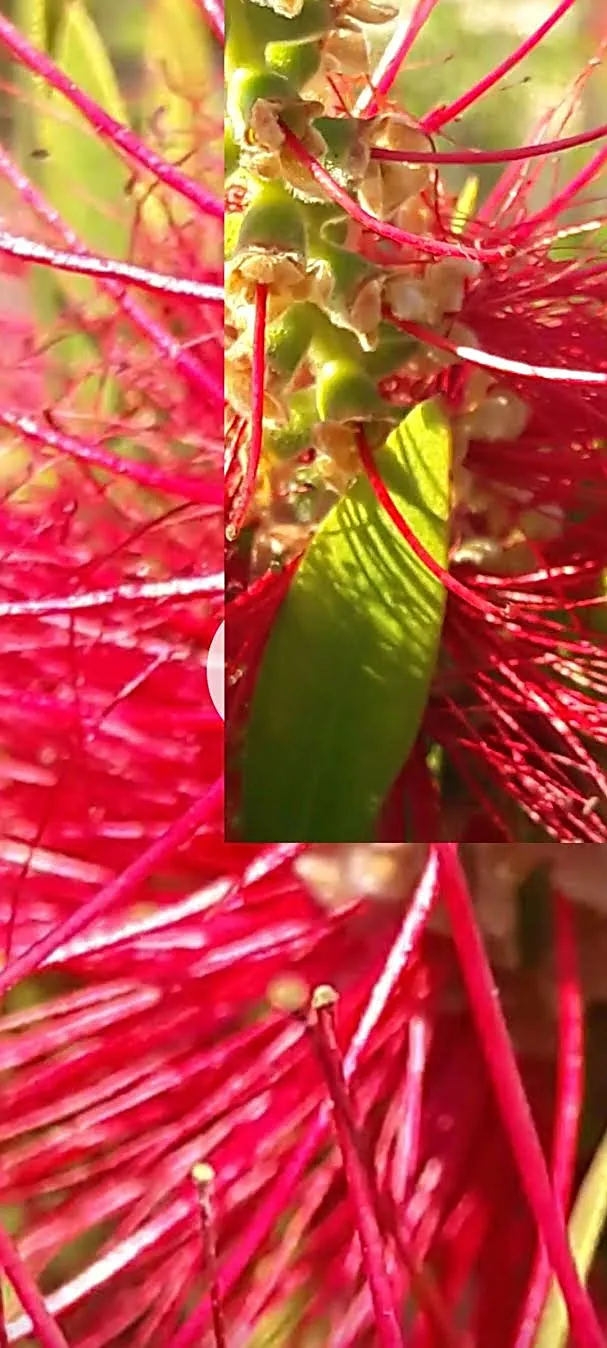
PRESENTATION
FLORA: DIVINE CITIZEN
Patrícia Soley-Beltran, curator
Asilvestradas (Feral) is an exhibition of photography and video about the return of the repressed: wild flowers explode over the asphalt as hallucinogenic manifestations of our forgotten connection with nature. The artist takes us with her along a green path where she discovers and portrays the feral spring that appeared in so many cities during the first lockdown. The great French theorist Gérard Genette wrote: “it is not the object that makes the relationship aesthetic, but the relationship that makes the object aesthetic.” Under Rosa Codina’s gaze, the nightmare of lockdown becomes an authentic dreamlike adventure in which the surreal beauty of the humble returns to us a feeling of utopia and of our place in the world. Her ‘Spring Tale’ narrates the creative process: an enchanted walk that does not neglect the passage of time – from the waves of blossoming to winter retreat.
In this seasonal journey, a kind of vegetal erotomachy inevitably emerges. We shouldn’t forget that flowers are the sexual organs of plants, and we humans sometimes use their names to refer to our own. Under the name of Chloris or Flora, their divine status was never questioned. The work of the gardener-philosopher Santiago Beruete narrates how the venerable Fathers of the Church, such as Aquiline of Tours, Epiphanius and Diodora Neopomucene, among many others, debated between the furor hortensis – that is, the possibility of obtaining sexual enjoyment while walking through an orchard – and the hard work of the garden, as a means of escaping from sex and ‘planting heaven’. Such is the attraction to flowers, that insensitivity to their charms – what the writer and activist Michael Pollan calls “floral tedium” – can even be considered a symptom of depression.
The importance of what humankind calls ‘nature’ – as if we were a separate entity from it – is captured by Ecopsychology when demonstrating how the environment not only conditions the way we live, but also our way of being and, of course, our health. New urbanism reacts in an attempt to reinvent the city by greening it and making it more habitable. Thus, the garden, but also each simple kerbside or gutter flower, becomes an engine for social change, symbolising the hope of an idyllic city in a fairer world.
In Santiago Beruete’s ‘green essay’ entitled “Poetics of the Wild and Narrative of Light in Rosa Codina’s En Plein Air Photography”, he explains why human feralism is key to our own survival, and not that of the planet we call Earth. The philosopher’s thinking revives the garden as an ally of light – for it never emerges from darkness – and the garden as a delightful paradise, but also as the scene of the fall.
In the post-pandemic context, Asilvestradas proposes a re-enchantment of the world in which ‘weeds’ display their beauty as the obverse of our own ugliness. These images, in all their innocence, awaken our biophilia and invite us to forget ourselves by contemplating them. Their beauty keeps utopia alive and anticipates heaven, while questioning the nature/culture distinction. Becoming feral and enlightened thus become one and the same process: becoming ‘cultivated’ people capable of reconciling the ideal and the real, ready to fulfil the raison d’être of the garden of which we are also a part, before we are definitively expelled.

ABOUT THE CURATOR
Patrícia Soley-Beltran is an essayist, cultural manager and consultant on gender matters. With a PhD in Sociology from the University of Edinburgh and a BA in Cultural History from the University of Aberdeen, she is the author of two academic books and numerous publications in scientific journals and book chapters. Her popular work won the Anagrama Essay Prize for Divine! Models, Power and Lies (2015) and the First María Luz Morales Journalism Award for the essay “Política eres tú” (El País Semanal, 2015). A lecturer at several universities, including Edinburgh, Aberdeen, Barcelona, Autònoma and Pompeu Fabra, she has given lectures at Caixafòrum, Barcelona Design Museum, Museo del Traje (Madrid), Casa de América, Centro Pompidou (Malaga) and TEDxBarcelonaWomen, among other institutions.
As a cultural manager, she has collaborated with Caixafòrum (Madrid, Barcelona), Museo del Traje, Francesca Bonnemaison – Diputació de Barcelona, La Térmica, Fundació Sa Nostra and Carmen Thyssen Museum, among others. She is a regular contributor to El País, La Vanguardia and Cadena SER’s Encuentros del Bienestar. She is the curator of DE AFUERA DENTRO (INSIDE YOU, OUTSIDE ME), La Térmica’s first entirely virtual exhibition by Susanne Junker. As an expert in gender perspective, she advises universities and governmental institutions, such as Barcelona City Council, ICUB, Diputació de Girona, Universitat Pompeu Fabra and Museu de Ciències Naturals de Barcelona, among others, as well as being the author of the guide ¡Cuenta con nosotras! Buenas prácticas para la programación cultural paritaria (Barcelona City Council). She worked as a model, actress and presenter (1979-1989) and, more recently, presented Terrícoles (Betevé 2016-2017), an in-depth interview programme. She is a member of the editorial board of the academic journal Critical Studies of Fashion and Beauty and of the advisory board of the Nagel Foundation. www.patriciasoley.com